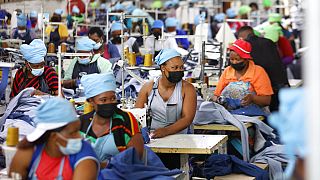Kenya
Global aid organizations are experiencing the effects of the Trump administration's choice to close USAID and reduce funding for other aid groups. The two main refugee camps in Kenya have been significantly affected by these funding cuts.
The Kakuma refugee camp in Kenya continues to be affectet by the trump's administration to cut USAID.
Empty warehouses – at the World Food Program’s food storage facilities at the camp paint a grin picture.
A couple of sacks of lentils from the US are among the last resources available for the entire refugee camp.
With warehouse supplies reduced to 25%, these lentils from the US are among the last resources available for the entire refugee camp.
Since the US, WFP’s largest donor, ceased its funding in February, no additional food has arrived.
Situated in the extremely dry northern region of Kenya, Kakuma accommodates over 300,000 refugees from nations such as South Sudan, Somalia, and the DRC.
With insufficient food available, WFP has been forced to significantly reduce food rations. In August, they report that more than a third of the refugees will receive no food at all.
Regina Ngole, who escaped the conflict in South Sudan, shows us the food for her family of seven.
Just a few leaves she gathered that day.
The rice, oil, and lentils she received from WFP for June and July have already been depleted.
Her two-year-old has been hospitalized multiple times due to severe malnutrition, which is why a community health worker has come to check on her.
Her health has improved – the question remains for how long.
While some refugees have established businesses or found jobs within the camp, the majority rely on food rations.











01:02
Over one million Nigerians face hunger due to funding shortages
00:07
UN High Commissioner for Human Rights continues his visit to Sudan
00:10
Somalia denies aid seizure as US suspends assistance over WFP warehouse claims
00:58
Somalia: US halts assistance to federal government
01:40
UN Finds dire conditions on first visit to Sudan’s el-Fasher since its fall
02:01
UN Chief urges world leaders to choose peace over war in new year message